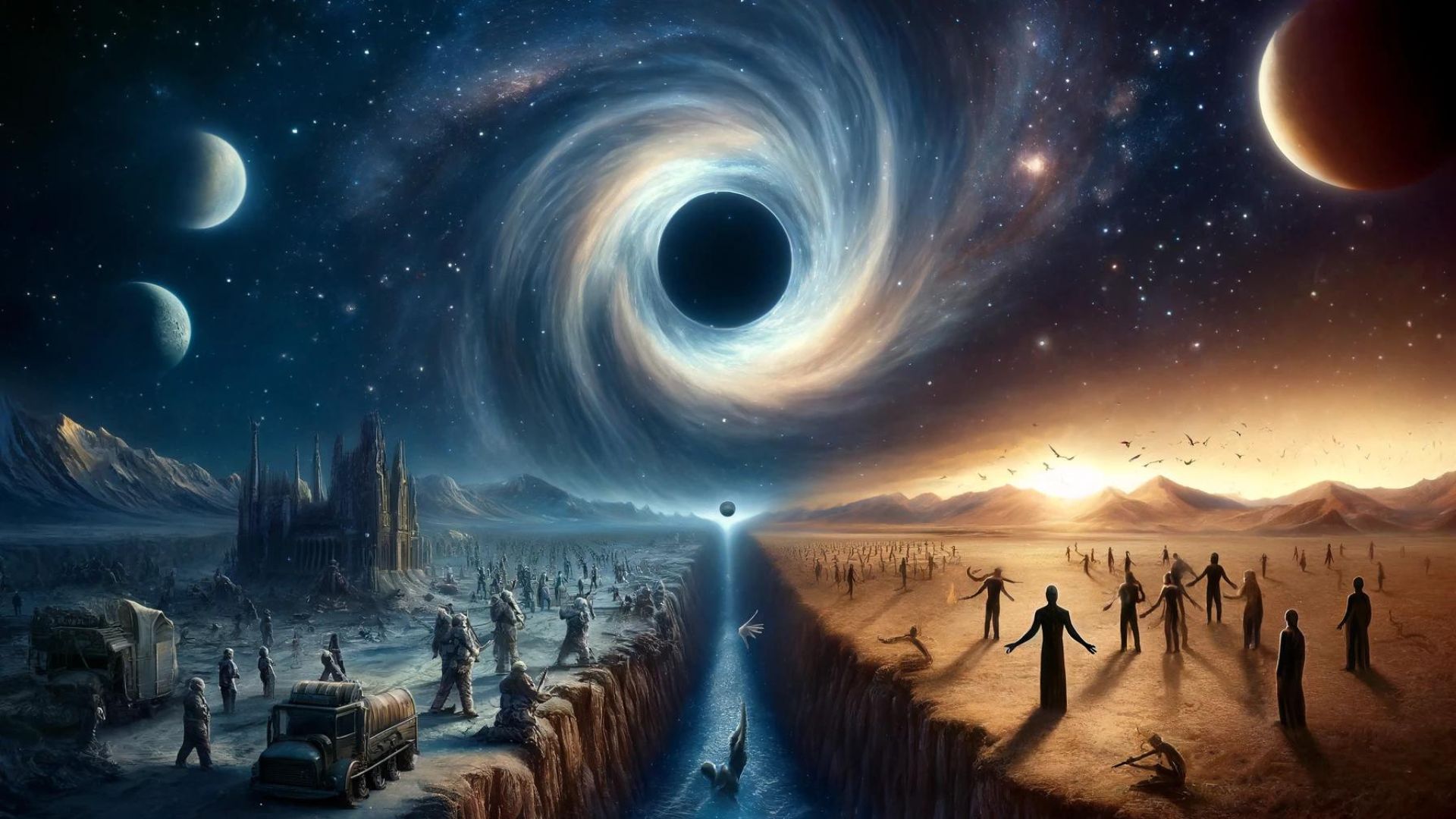Beyond the Black Hole by Phoenix
What if there were other souls
On the other side of the black hole?
What if our hands reach out
and touch their hearts?
Could they be blacker?
Then when we look back
will we see our hearts so white?
What if they do not believe in what we do?
what if partial truth matters not,
will we then convert those infidels
will we baptize them with fire
with dirt, with tears, with blood
with our arrogance shelling who they are?
will we teach them to be human?
What if they do not use money?
How will they be indebted to our banks?
What if they do not have chiefs?
How will we enslave them then?
What if they do not have a god?
Will we change our scriptures to include them?
Will we teach them to be human?
What if they crave no possessions?
What if they think they are all the same?
What if they need no protection?
What if they mean no one no harm?
How will we justify our shields and guns
flooding their land to strike civil war?
How will we teach them to be human?
What if they are far stronger and more advanced
yet they do not mean to raid our world?
Will we accept that we are not the best?
Will our warmongering heroes pick a fight?
To sacrifice what need not be sacrificed
to give martyrs a causeless cause to die for;
can we but once not be so human?
“Beyond the Black Hole”: Confronting Our Shadows in the Cosmos
Phoenix’s poem “Beyond the Black Hole” transcends the literal imagery of space and delves into a metaphorical black hole — the dark chasms within human nature. It challenges our self-righteousness, our destructive tendencies, and our assumptions about what it means to be “human.”
The Black Hole as Metaphor
The black hole is a powerful symbol of the unknown. The poem uses this cosmic phenomenon to represent the potential existence of another society, a world beyond our understanding. This imagined encounter forces the speaker, and the reader, to confront the uncomfortable aspects of our history and the darker side of human interaction.
Challenging Colonialism and Conquest
The poem pointedly critiques a history marked by colonialism, religious conversion, and violence. The speaker questions the ingrained belief that “we” are superior: “Will we baptize them with fire… with blood?” There’s a stinging awareness of the atrocities often committed in the name of “civilizing” others.
Questioning Humanity
The poem flips the script, making the reader wonder, who is truly more “human”? The imagined beings on the other side of the black hole—peaceful, without greed or a thirst for domination—reflect humanity’s failings. The biting irony lies in the repeated line, “Will we teach them to be human?”
A Search for Connection?
Despite the sharp critique, a thread of longing runs through the poem. The opening line, “What if there were other souls…?” suggests a desire for connection, a deep curiosity about those who might be fundamentally different from us. But even in this desire, the shadow of harmful patterns looms large.
The Power of Provocation
Phoenix’s poem doesn’t offer easy answers. It provokes us to question our assumptions, to confront the less-than-noble aspects of our shared history. The use of a cosmic backdrop adds a sense of both urgency and introspection – what kind of beings are we, here in this vast universe?
Beyond Analysis
“Beyond the Black Hole” is a powerful reminder that poetry can be a catalyst for self-examination and social commentary. Its themes of colonialism, ethnocentrism, and the destructiveness of human nature remain sadly relevant. Perhaps the path toward a better future lies in facing these uncomfortable truths, allowing them to unsettle us, and striving to become the kind of beings we’d be proud to encounter beyond any black hole.











0 Comments